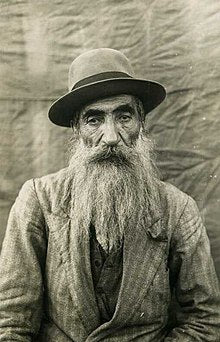Introduction
In the struggle for Kurdish rights and autonomy, few figures are as significant as Seyid Riza. A prominent leader during the Sheikh Said Rebellion of 1925, Riza dedicated his life to advocating for the Kurdish people in the face of oppression and political upheaval. His legacy is a testament to the resilience and determination of the Kurdish nation, and his story continues to inspire contemporary movements for Kurdish rights. This blog post explores the life, contributions, and enduring impact of Seyid Riza.
Early Life and Background
Seyid Riza was born in 1865 in the village of Piran, located in the eastern part of Turkey, which is predominantly Kurdish. Coming from a religious family, he was well-educated in Islamic theology and developed a deep understanding of the socio-political issues facing the Kurdish population. His early experiences shaped his worldview and instilled in him a strong sense of responsibility toward his community.
As a respected religious leader, Seyid Riza gained influence among the Kurdish people. His position allowed him to advocate for their rights and interests, particularly as the political climate in Turkey began to shift following the collapse of the Ottoman Empire.
The Sheikh Said Rebellion
The Sheikh Said Rebellion of 1925 was a pivotal moment in Kurdish history, sparked by widespread dissatisfaction with the Turkish government's policies toward the Kurdish population. Seyid Riza emerged as a key leader during this uprising, which aimed to secure greater autonomy for Kurds and address grievances related to cultural suppression and political marginalization.
Under Riza's leadership, various Kurdish factions united in their struggle against the Turkish state. He emphasized the importance of solidarity among Kurds, advocating for a collective effort to assert their rights. The rebellion, while ultimately suppressed, was significant in highlighting the Kurdish plight and raising awareness of their demands for recognition and autonomy.
Advocacy for Kurdish Rights
Seyid Riza was not only a military leader but also a vocal advocate for Kurdish rights. His speeches and writings articulated the aspirations of the Kurdish people, emphasizing the need for cultural preservation and political representation. Riza's ability to galvanize support among diverse Kurdish groups showcased his leadership qualities and deep commitment to his people's cause.
Despite the defeat of the Sheikh Said Rebellion, Seyid Riza's efforts were instrumental in laying the groundwork for future Kurdish movements. His vision of unity and autonomy resonated with subsequent generations, inspiring activists and leaders who continue to fight for Kurdish rights today.
Legacy
The legacy of Seyid Riza is profound. He is regarded as a national hero among Kurds, symbolizing the struggle for self-determination and cultural identity. His efforts during the Sheikh Said Rebellion remain a significant chapter in Kurdish history, illustrating the enduring quest for rights and recognition.
In contemporary Kurdish movements, Seyid Riza's ideals of unity and resistance continue to inspire activists. His teachings on the importance of cultural pride and political engagement resonate strongly in the ongoing struggle for Kurdish autonomy across the region.
Conclusion
Seyid Riza's life and legacy are emblematic of the Kurdish people's enduring fight for rights and recognition. As a leader during the Sheikh Said Rebellion, he advocated for unity among Kurds, emphasizing the importance of cultural preservation and political representation. His story serves as a reminder of the resilience of the Kurdish nation and the ongoing quest for autonomy.
As we reflect on the contributions of Seyid Riza, we are reminded of the central role that leadership and advocacy play in the pursuit of justice. His legacy continues to inspire generations of Kurds, fueling the ongoing struggle for identity, rights, and cultural recognition in the face of adversity.
